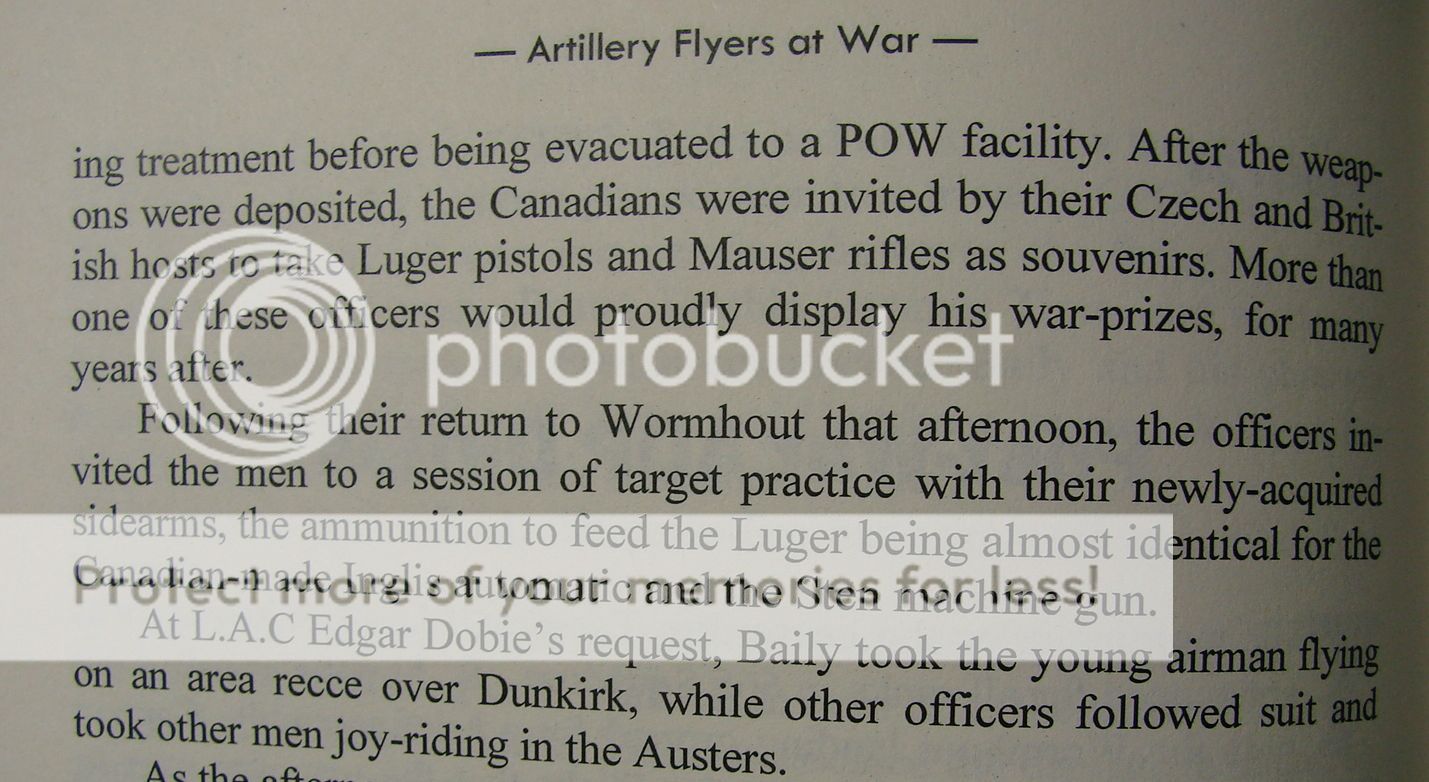Gunexpert007,
I don't know about the 1938 dated Luger----but the 1937 dated P.08 comes with a story.
It was picked up by the Canadian vet that got it in Dunkirk on May10th 1945 following the German surrender.
The vet was the last Canadian pilot in the air calling artillery shots on Dunkirk before the German surrender.
He was an RCA artillery officer that flew with Squadron 665 (AOP) R.C.A.F.
I have put together a lot of his WWII history with the help of his daughter and Darrell Knight the author of the book shown below.

The Canadian Vet Capt. Bev Baily that brought back the 1937 dated Luger rig.

A comment from Darrell knight that wrote the book above.
"There was an article that came out in the Ottawa Citizen some years ago, about Ray Irwin having fired the last Canadian shot of the war in Europe. Technically this was incorrect, and I sought to correct the error in the book. The B Flight clerks logged the departure and return of each sortie flown (15 operational flights from ALG Wormhout to action-stations over Dunkirk on Monday, May 7, 1945...two days after all fighting had ended in Holland and Germany). In fact, Bev was the last combatant in the air over Dunkirk, when the cease-fire was called (there had also been a British Flight of Auster Vs in the air). I gave the accolade to the whole Flight (and a mention to the British Flight) but in the order they had participated, however, as it was a day-long action involving the Flight's five pilots and six of the observers, including my Dad, #K8712 Gunner Ray Knight."
The Canadians fighting at Dunkirk - with their British AOP counterparts - appear to have been the last Canadian combatants up to the cease-fire at 1530 British double summer time...no report of another RCAF aerial battle (that I know of) exists, and the Canadian Army called a cease-fire on the ground across Holland and Europe on Saturday, 5 May 1945. Bev was the last to range his guns at Dunkirk, and was interrupted by the cease fire declaration on the HF.
From Darrell Knight's book---where the Luger pistol came from.



































































































